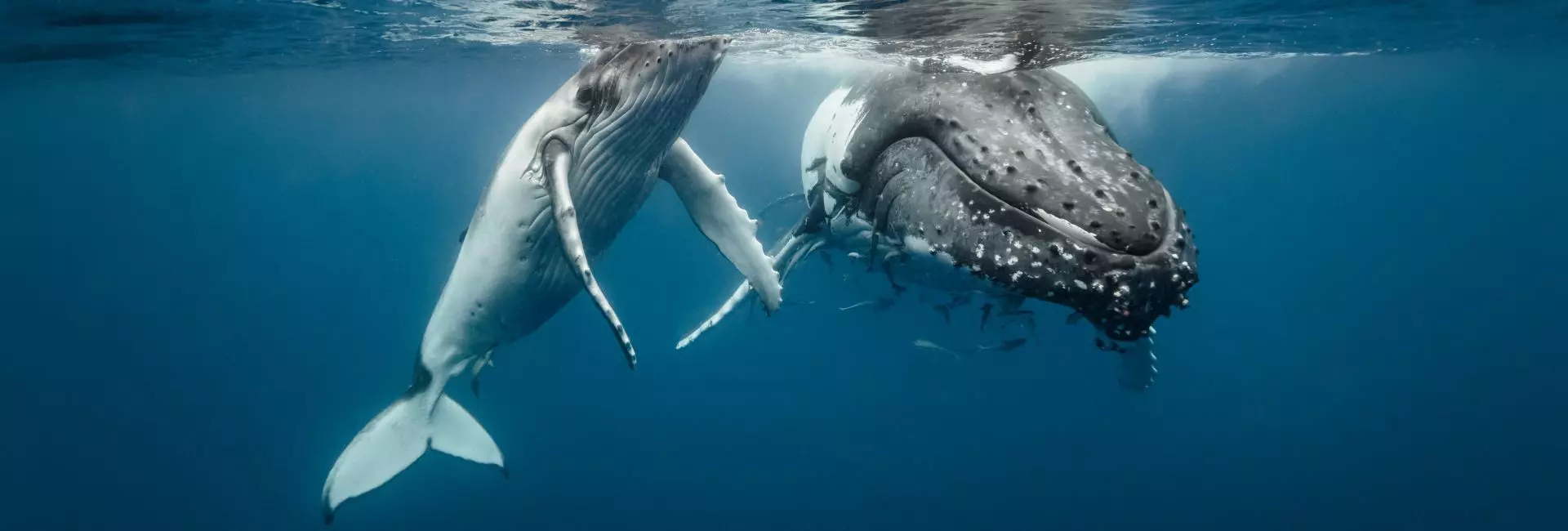Today is World Whale Day: an ever-important day in the animal calendar, which serves to raise awareness of these marine giants and their underwater habitats. But there is nowhere that holds the occasion more dear, than the island of Maui.
As Hawaii’s second-largest island, Maui is largely responsible for putting World Whale Day on the map. This annual holiday was founded back in 1980 as the main showcase of the aptly titled Maui Whale Festival, honouring the humpback whales that swim off of the coast, and serving to ignite action to protect the species and their waters they live in. Over the years the festival has grown in both success and attendance, with over 20,000 people arriving to celebrate on the island and to take part in all manner of activities: live music and carnivals give real life to the occasion; food booths provide delicious snacks to revelers throughout the day; and of course the Parade Of Whales, the most creative and fun part of the whole occasion. The people of Maui sure know how to raise awareness in a way that is fun, informative and unforgettable; and as such, they are able to raise impressive levels of awareness for whales (as well as funds and donations.)
However, as successful as the island’s festival may be, the need to protect whales is ever-present – especially in light of recent events, when over 400 whales washed ashore on a New Zealand beach. Indeed, the tragic incident on Farewell Spit (at the tip of the South Island) will have been felt tenfold by the people of both islands: New Zealand has deep Maori roots, and an equally deep respect for nature, felt also by the people of Hawaii.
At the time of writing, around 275 pilot whales are known to have died on the shores of Farewell Spit. The occurrence was (and still is) simply heartbreaking; and while the circumstances surrounding the tragedy are undoubtedly mysterious, the story made waves worldwide…and consequently made man look closer at his own impact on the planet’s marine life.
While World Whale Day would still go ahead with or without such a shockingly unfortunate event, now is absolutely the time to use this unexpected spotlight for the greater good, and to turn tragedy into something all the more inspiring. Around the globe, millions of people are doing their part to ensure the survival of whale species, often through raising awareness of threats that we are capable of preventing. These detrimental, generally man-made causes include (but are not limited to) the following:
- Commercial whaling
- Ship strikes
- Climate change
- Cumulative threats (such as marine debris, oil and gas development, disturbance by recreation boats, and noise pollution.)
There is much man can do to limit the number of threats faced by whales, but without World Whale Day (and, indeed, the tragedy at Farewell Spit), it is arguable that many would let this important cause slip under the radar. In fact, is it perhaps fair to say that away from this short, annual world-wide focus, many people may fail to give our planet’s marine-life any consideration at all – and it’s for this reason, that volunteering is so very important. By taking part in a conservation project (such as this one in The Azores, or indeed any marine project across the world), volunteers are able to gain a valuable understanding of the creatures that live in our oceans, contributing to vital research missions and collecting invaluable data. The Great Projects are proud to provide such projects, allowing our volunteers to make a real difference to the lives of endangered animals across the world.
To find out more about what we do (and how else your volunteer trip aids conservation efforts across the globe), please click here. And to find out how you can volunteer with whales, check out our Great Whale Project now!
















